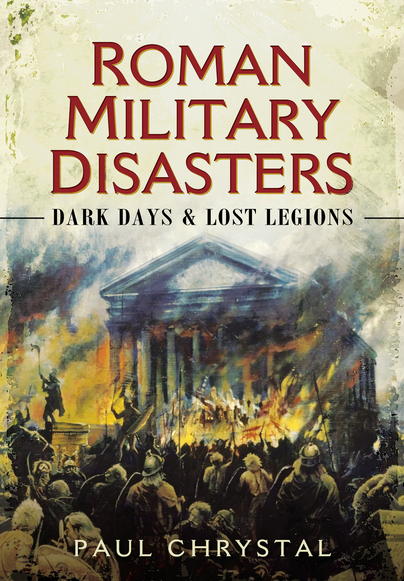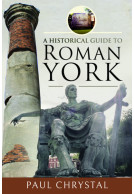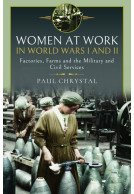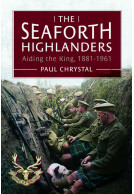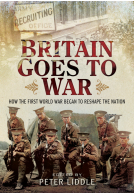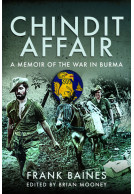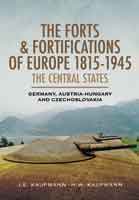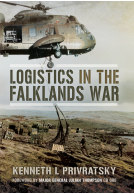Roman Military Disasters (Hardback)
Dark Days and Lost Legions
Imprint: Pen & Sword Military
Pages: 310
ISBN: 9781473823570
Published: 2nd December 2015
(click here for international delivery rates)
Need a currency converter? Check XE.com for live rates
| Other formats available - Buy the Hardback and get the eBook for free! | Price |
|---|---|
| Roman Military Disasters eBook (22.7 MB) Add to Basket | £6.99 |
There is a tendency when dealing with world superpowers to focus on their successes. After all, these are what made them superpowers in the first place. However, reverses and disasters suffered on the way to preeminence are equally significant. The experience of ancient Rome is no different. This book is the first to examine the paradoxical role lost battles and defeat played in the success of the Roman Republic and the Roman Empire.
Over some 1200 years, the Romans proved adept at learning from military disaster and this was key to their eventual success and hegemony. Roman Military Disasters covers the most pivotal and decisive defeats, from the Celtic invasion of 390 BC to Alaric's sack of Rome in AD 410. Paul Chrystal details the politics and strategies leading to each conflict, how and why the Romans were defeated, the tactics employed, the generals and the casualties. However, the unique and crucial element of the book is its focus on the aftermath and consequences of defeat and how the lessons learnt enabled the Romans, usually, to bounce back and win.
This book's merit is that it brings military defeats under attention while most books deal with the successes.
Society of Ancient Military Historians
A chronological list of Roman military mishaps, starting the Roman Republic and culminating in the fall of the Roman Empire.
Know the Romans
A civilisation’s military failures are often overlooked in favour of preserving their grandeur, and I mean would you expect anything else? History is written by the victor after all, and crushing defeats often find themselves conveniently brushed under the carpet.
The author has done well to illuminate and provide a detailed account of some of Rome’s less fortunate military dealings, from Teutoburg Forest to other lesser known failings.
Ideal for providing the reader with a general timeline of Roman military campaigns, both successful and not so successful. This book is recommended for all those interested in the military history of the greatest civilisation of the ancient world.
The Roman military existed from Rome’s founding in 753BCE to the fall of Constantinople in1453CE. This book covers the military disasters, losses and sieges from the sacking of Rome in 390BCE to its fall in 410CE.
Dr John Viggers, Freelance
In the process of forming the world’s largest empire, victory was more common than defeat for the Roman military, but as this very readable book makes clear, there were many defeats and disasters along the way.
All of the well known disasters are described in considerable and gruesome detail…. Cannae, Carrhae, Teutoberg forest, Adrianople. But the sheer number and horrific consequences of the other actions, including the “victories”, is mind boggling. Boudica, the Jewish wars, the Punic wars, and many others.
Chrystal argues that the Roman reaction to the defeats was crucial to Rome’s overall empire building. The adoption of new tactics and technologies, the “never surrender, never give in” attitude, as well as seemingly inexhaustible supplies of manpower and wealth, willingness to fight, to win, with whatever degree of violence, terror, cruelty and ruthlessness was required.
Slightly tangential, considering the book’s title, is a most interesting 18 page essay on Cleopatra, who took part in Rome’s civil wars. In comparison, the 8 pages about Rome’s disastrous loss to Hannibal at Cannae seemed a bit brief.
Overall, an engrossing read.
As well as simple historical interest, I think many wargamers will find something in here to help them with their gaming as well.
Military Modelling, Robin Buckland
Read the complete review here.
At its best this book is very good, coming up with convincing reasons for the major defeats and examining the changes in tactics, strategy and military equipment that often followed, as the Romans showed an unusual level of willingness to learn from their enemies...
History of War
What this book makes clear is that Rome's success was largely due to her impressive resilience, which lasted almost to the end in the West.
Read the full review here.
One normally thinks of the Roman Army as a
Books Monthly, May 2016 - Paul Norman
well-oiled, invincible machine, conquering everything before it and in its way. And so it was, for the most part. Paul Chrystal reminds us that the Romans became all-powerful because they learned from their mistakes, of which there were a significant number.
About Paul Chrystal
Paul Chrystal has been history advisor to York visitor attractions, writing features for national newspapers, and broadcasting on BBC local radio, on Radio 4’s PM programme and on the BBC World Service.
He is contributor to a number of history and archaeology magazines and writes features for national newspapers. He is author of the best-selling A History of Britain in 100 Objects (2022). His books have been translated into Chinese and Japanese.
He is author of Factory Girls: The Working Lives of Women and Children published by Pen & Sword in 2022.
The Book in the Ancient World How the Wisdom of the Ages Was Preserved (Hardback)
This is both a history of books as objects and artefacts but also a social history about the use and transmission (or restriction) of knowledge in the ancient world. The author sets the scene by discussing the invention of writing and the development of the various alphabets. He then surveys the book's precursors, the evolution of writing materials through clay tablets, papyrus scrolls, parchment, wooden and bronze tablets, culminating in the codex – the book as we know it. The author then takes us on a fascinating 900-year journey through the classical world, describing the recording, preservation…
By Paul ChrystalClick here to buy both titles for £45.00







